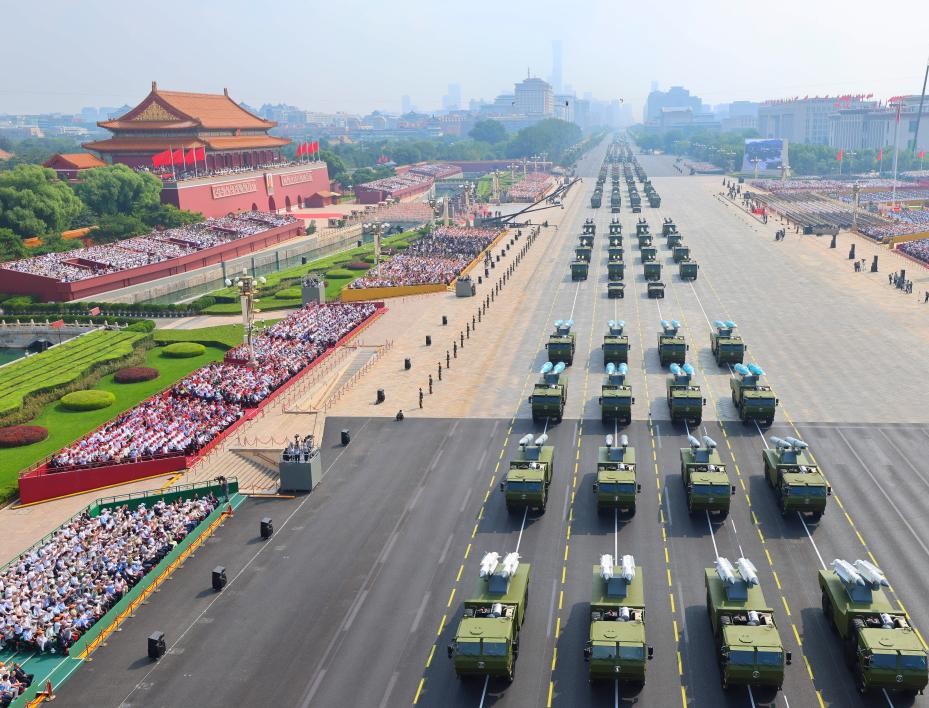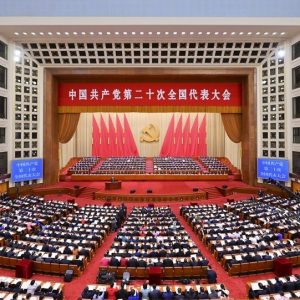CUS’s 106-page report analyses China’s encroachment in Central Asia via Shanghai Cooperation Organisation and Belt and Road Initiative….reports Asian Lite News
The Centre for Uyghur Studies (CUS), an institute that combines academic research and human rights advocacy and is focused on Uyghur-related studies and activities, released a report on Thursday highlighting the effects and tactics employed by China to infiltrate Central Asia.
According to a press statement released by CUS, the 106-page report analyses the strong role of two major entities belonging to China, namely the Shanghai Cooperation Organisation and China’s ambitious Belt and Road Initiative (BRI), which serve as the cornerstones for China’s increasing encroachment into the region.
The statement further states the factors influencing the use of East Turkistan as a corridor and its geopolitical implications. Furthermore, the report also extends to China’s burgeoning presence in Central Asian countries through large-scale infrastructure projects, enhanced bilateral trade, and collaborative security measures. An important aspect of this study is the investigation of China’s soft power strategies in shaping regional dynamics.
Highlighting this, the report stated that “The Shanghai Cooperation Organization (SCO) has provided China with a legal status and a stable mechanism for active military activity in the region, and the newly established China-Central Asia Summit has further enhanced China`s political position in the region. The role of Central Asia is vital in the < The report also emphasizes the multifaceted consequences of these deepening bilateral relations, and how economic engagements, particularly in infrastructure and trade, have led some Central Asian countries into a potential debt trap, fostering a perilous dependence on China. The report also stresses the position of the democratic countries, surrounding China over the genocide of ethnic minorities like Uyghur and Turkic Muslims in East Turkistan, as China currently has political and economic leverage on them.
The report also sheds light on the alarming human rights abuses linked to these relationships, raising critical questions about the ethical implications of such partnerships and CCP’s exporting corruption through BRI. Additionally, China’s support and bolstering of authoritarian regimes in the region are critically examined, probing the impact on regional governance and political stability.
Additionally, the report even delves into unraveling the complex web of economic, diplomatic, and security ties, and their profound implications for the region’s future and its place in global geopolitics. While highlighting the genocide inflicted by China on the Uyghur community, it stated that “the Chinese Communist Party has accused those who recognize the Uyghur Genocide in East Turkistan or states that speak out about the Uyghur Genocide of interfering in their internal affairs. It explains this argument with the principle of noninterference in internal affairs. However, these analyses to date have revealed that China`s principle of non-interference in internal affairs actually means supporting authoritarian regimes all over the world, especially in Central Asian countries. This perspective, which ignores universal international rules, also applies to the relations between China and Central Asia”.
Conclusively, the report reveals a multifaceted and deeply impactful narrative of China`s infiltration into Central Asia. Through a combination of diplomatic initiatives, economic investments, and security alliances, China has successfully expanded its influence in this strategically important region.
The Shanghai Cooperation Organization and the Belt and Road Initiative have emerged as critical instruments in this expansion, facilitating infrastructure development, trade, and regional cooperation. However, this growing influence has not been without its challenges and controversies.

Over 80% of Taiwanese Support Status Quo with China
More than 80 per cent of Taiwanese people want to maintain the status quo with China, with those preferring to keep Taiwan’s current status indefinitely rising sharply, while those who want independence have been dropping since 2020, according to the results of a survey released on Friday, Central News Agency Taiwan reported.
In the survey titled “Changes in the Unification-Independence Stances of Taiwanese,” National Chengchi University’s Election Study Center, which has tracked the annual change in Taiwanese residents’ stance on the issue from 1994-2023, said it saw increasing support for the continuation of cross-strait status quo.
The three most preferred choices in 2023 were: “maintain the status quo indefinitely” (33.2 per cent), “maintain the status quo, decide at a later date” (27.9 per cent) and “maintain the status quo, move toward independence” (21.5 per cent), according to the Center.
Added together, those three categories of people who either want to maintain the status quo for now or indefinitely accounted for 82.6 per cent of the total, Central News Agency Taiwan reported.
The least preferred option was “unification as soon as possible,” which had never exceeded 5 per cent since the survey has been conducted and stood at only 1.2 per cent in 2023, according to the findings.
That category of people who want to “maintain the status quo, move toward unification,” has dropped from the third highest percentage overall, or 15.6 per cent, in 1994, to 6.2 per cent in 2023.
Also, in 2023, only 3.8 per cent of respondents expressed a desire for Taiwan’s immediate independence, making it the second least preferred option overall, with support over the decades never exceeding 7.8 per cent.
Central News Agency Taiwan reported that the percentage of people who want independence now and those who want it later have been steadily dropping since 2020. The two groups added together fell from a high of 32.1 per cent in 2020 to 25.3 per cent last year.
The fastest growing category of people were those who want to maintain the status quo indefinitely; it rose from 9.8 per cent in 1994 to 33.2 per cent last year, rising sharply since 2020.
It surpassed those who favored “maintain status quo, decide at later date” for the first time in 2022.
This survey was released in tandem with another one that tracked the year-on-year changes in how Taiwanese people identify themselves (as Taiwanese or Chinese) between 1992 and 2023.
That second survey showed that 61.7 per cent of Taiwanese in 2023 identified themselves as Taiwanese, falling a little from the record high of 64.3 per cent seen in 2020. That self-identification preference has ballooned from 17.6 per cent in 1992 to more than threefold last year, Central News Agency Taiwan reported.
Last year, around one third of respondents considered themselves both Taiwanese and Chinese, continuing a general downward trend from 46.4 per cent in 1992 to 32 per cent in 2023. But last year those who considered themselves to be Taiwanese and Chinese rose slightly from the record low of 29.9 per cent in 2020.
In contrast, significantly fewer people consider themselves to be simply Chinese, with the number falling from 25.5 per cent to 2.4 per cent over the past 30 years.
Only 3.9 per cent of respondents showed no response in 2023, down from 10.5 per cent in 1992.
According to the center, the surveys were conducted via telephone questionaires with respondents ranging from 1,209 to 34,854 per year.
The center said it used key sample variables to weight the sample’s partial characters such as sex, age, and education through an iterated (or raking) process to ensure the sample structure is representative of the population.
It did not provide the confidence level and margin of error. (ANI)
ALSO READ: China Instilling ‘Panic’ in Taiwan Amid Leadership Shift














